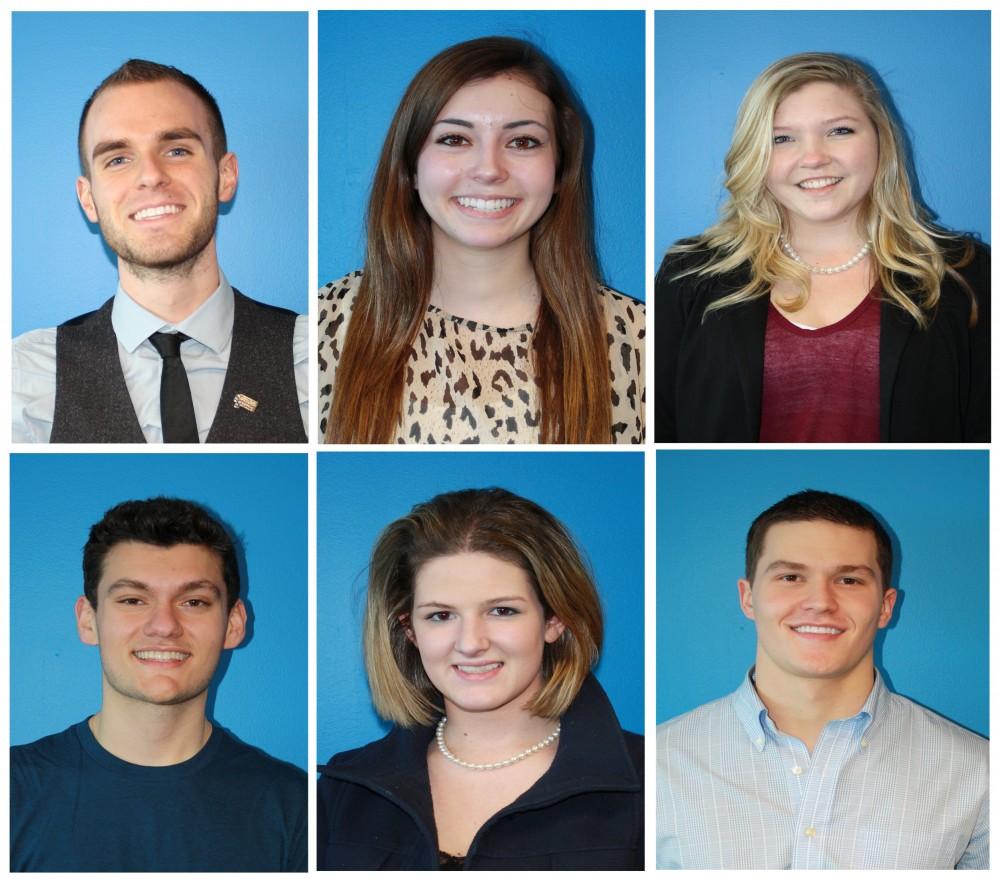Student Senate stocking the cabinet

Apr 13, 2014
Last week, Grand Valley State University’s Student Senate finished up the last step of the election process with the voting on all nine cabinet positions.
Five of the positions ran unopposed — vice president for diversity affairs, vice president for educational affairs, vice president for finance, executive vice president and president. The other four positions had two or three nominees.
The position of president was the first to be voted on. Andrew Plague, the previous vice president for political affairs, was elected.
“I’m looking forward to working with administration here and making sure that the student voice is heard,” Plague said. “I have a lot to learn, and I’m excited to do that.”
Plague also said he was pleased with the outcome of the elections and was impressed by all the senators who were candidates — both those who were voted into cabinet and those who were not.
“I’m hoping the people who ran and didn’t win stay on and serve on their committees because I think that the elections process has brought out a lot of really great ideas,” he said.
The previous vice president for public relations, Emma Moulton, was chosen to be the new executive vice president. Moulton said that although the position doesn’t include much work on its own until the winter semester, she will be ready to take on any tasks she needs to until then.
“The executive vice president’s schedule is kind of slower in the fall, so I’ll really be that support system for everyone on cabinet and everyone on senate as well,” Moulton said.
The other newly elected cabinet members were: Jonathon Cook, vice president for senate resources; Jorden Simmonds, vice president for finance; Eric Cousins, vice president for campus affairs; Scott St. Louis, vice president for educational affairs; Rainesha Williams-Fox, vice president for diversity affairs; Madelaine Cleghorn, vice president for the newly created external affairs committee; and Tyler Ziola, vice president for public relations.
The rest of the senators will be put into their committees over the summer.
Bob Stoll, associate dean for Student Life, has been working with Student Senate for 30 years and said that this was the most efficient cabinet election the senate has ever had. Stoll attributes the effective election to the senators arriving well-equipped.
“I think they’ve come in prepared on the front end and they’ve done their homework,” he said.
Senators were not only prepared with questions, but they were also well organized.
“I think that’s one of the key things: that they have looked at how to conduct business in a more efficient manner without putting the typical politician speech after speech, interrogation after interrogation,” Stoll said.
Even without lengthy interrogations of candidates, the process of voting is a complex one. A week before elections, the newly elected senators are nominated by their peers for the different cabinet seats. The nominees then have a week to prepare a speech.
On the night of elections, nominees present their speeches to the newly elected body, followed by questions from the senators. After nominees provide answers, senators discuss the candidates and cast their votes.

























